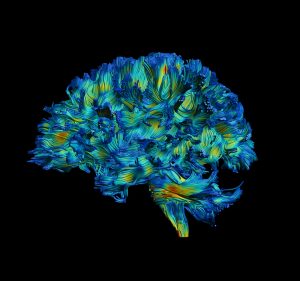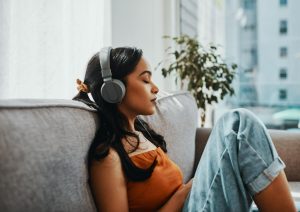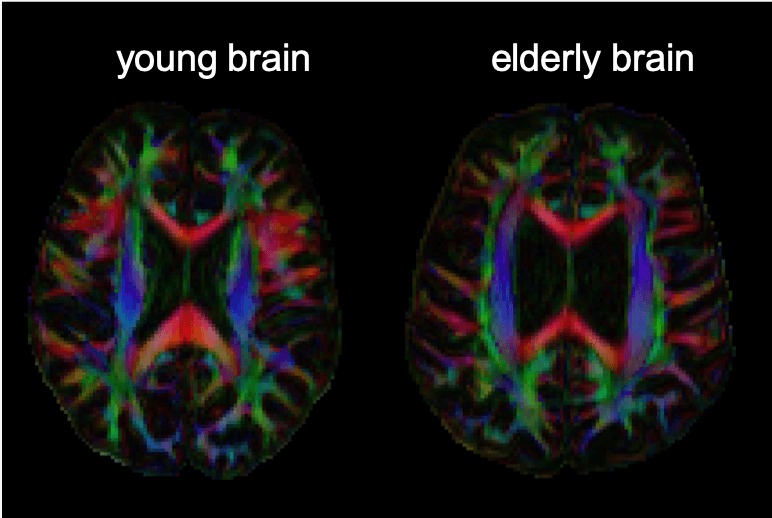It would be nice if we could all fight off the forgetfulness and the brain decline of age by simply listening to music, which is what the headline of a story in StudyFinds April 18th promised. Alas that’s not quite what the new study the report is about demonstrates.

The new research comes from eleven authors at seven major universities and research centers in Switzerland and Germany. The researchers put 132 folks between the age of 62 and 78 through two different six-month programs.
• The participants in one group spent an hour and a half a day learning to play the piano.
• The other group spent an hour and a half a day listening to music, learning to distinguish the instruments, and analyzing what the researchers called “the music properties across musical styles.”
None of this was simply listening to music. All of it was hard work. But both of these labor-intensive groups got a brain boost out of the program. Explains StudyFinds, “Neuroimaging revealed an increase in grey matter in four brain regions involved in high-level cognitive functioning in all participants” The research subjects’ brain performance increased by six percent.
Concluded the researchers, music “education for seniors should become a major policy priority in the framework of healthy aging, to promote brain plasticity and cognitive reserve”
That’s fine. But what about the headline’s promise that simply listening to music could improve your brain? Is it true? And if there is a benefit to music listening, is that bonus backed by research?
Can you boost your brain’s ability to ward off senility simply by listening to music as you go about your daily chores? Does casual listening help protect your brain against dementia and Alzheimer’s?
The answer, surprisingly, is yes.

The number of studies on how music strengthens the brain is enormous. But most of that research proves that getting into music the hard way–learning to play an instrument or joining a choir–does wonderful things to protect your brain against aging.
So what about casual listening? Casual listening, it turns out, also works. Yes, just listening to music during your daily routine, says Johns Hopkins Medicine, “provides a total brain workout.” Explains Hopkins, “listening to music can reduce anxiety, blood pressure, and pain as well as improve sleep quality, mood, mental alertness, and memory.”

In one two-month study, half the experimental subjects were made to listen to an audiobook of their choice for an hour a day. The other group listened to the music of their choice. One of the primary researchers on music’s relationship to the brain and aging, Finland’s Teppo Sarkamo, sums up the results like this: music “listening was found to be superior to audio book listening.”
Then Sarkamo reports three major brain areas in which merely listening to music increases the amount of gray matter. Including the brain’s dopamine-powered reward centers. How does music pull this off? Sarkamo says “music arguably ranks among the most powerful and diverse sensory, motor, cognitive, and emotional experiences” you can have.

What’s more, Sarkamo has surveyed the literature extensively, and he has additional recommendations for you and me. “Exposure to music (often with fast tempo and in major mode),” he says, “can temporarily enhance cognitive performance.” There’s more. “Reading and playing board games,” Sarkamo adds, plus “playing musical instruments and dancing were reported to be the leisure activities that were specifically linked to a reduced dementia risk.”
The bottom line? Your brain operates on a simple principle: use it or lose it. And music uses it.
References:
https://studyfinds.org/listening-to-music-dementia/
https://www.sciencedirect.com/science/article/pii/S2666956023000119?via%3Dihub
https://www.hopkinsmedicine.org/health/wellness-and-prevention/keep-your-brain-young-with-music\
Teppo Sarkamo, Music for the ageing brain: Cognitive, emotional, social, and neural benefits of musical leisure activities in stroke and dementia, Dementia 2018, Vol. 17(6) 670-685 http://dx.doi.org/10.1177/1471301217729237
https://www.pacificneuroscienceinstitute.org/blog/alzheimers-disease/how-music-prevents-cognitive-decline/
https://bmcneurol.biomedcentral.com/articles/10.1186/s12883-022-02902-z
https://www.alzdiscovery.org/cognitive-vitality/blog/does-music-benefit-the-brain
https://practicalneurology.com/articles/2017-june/music-and-dementia-an-overview
https://content.iospress.com/articles/journal-of-alzheimers-disease/jad210610
